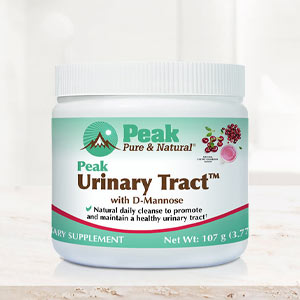Get Easy Health Digest™ in your inbox and don’t miss a thing when you subscribe today. Plus, get the free bonus report, Mother Nature’s Tips, Tricks and Remedies for Cholesterol, Blood Pressure & Blood Sugar as my way of saying welcome to the community!
The veggie that gives back the heart protection menopause steals

Did you know that high estrogen levels are believed to play a role in why young adult women have a lower risk of heart disease than men in the same age range?
Unfortunately, that means when our estrogen levels start to decline, we lose that protection.
Women have a much steeper heart disease risk once menopause strikes and estrogen levels plummet.
However, research has shown that even in the early stages of perimenopause (the phase before menopause), permanent changes are already happening that impact a woman’s heart health.
Some women go the route of hormone replacement therapy. But it’s generally only considered safest during the first few years post-menopause. After that, it carries a higher risk for cancer and stroke.
But finally, there’s a safe and all-natural answer to keeping your heart healthy — without any of those risks…
A beet a day could keep heart problems away
Estrogen is more than a female hormone. It affects factors that regulate vascular wall elasticity.
“After menopause, women no longer produce estrogen, which helps maintain nitric oxide in the body. This loss of nitric oxide production contributes to the substantial increase in heart disease risk for postmenopausal women,” says Dr. Jocelyn Delgado Spicuzza, who specializes in integrative and biomedical physiology.
But she and fellow researcher David Proctor, professor of kinesiology and physiology at Penn State, believe they have a solution that involves foods that are rich in nitrates — like beets — that could be put to use as natural, non-pharmaceutical ways to protect women’s hearts and blood vessels.
Dietary nitrates, found in a few special foods like beets, are converted in the body to nitric oxide (NO), a compound that helps blood vessels dilate so more oxygen-rich blood can flow through your body.
Decades ago, Nobel Prize-winning scientists discovered that NO, a signaling molecule, was found in the endothelial cells that lined artery walls — where its chief function was as a powerful vasodilator and an important regulator of the cardiovascular system.
Spicuzza and Proctor led researchers who tested how nitrate-rich beetroot juice impacted blood vessel health in 24 postmenopausal women in their 50s and 60s. The women first had their vascular function tested and then consumed two 2.3-ounce bottles of beetroot juice as an initial dose, followed by one bottle every morning for a week. Each serving provided as much nitrate as three large beets. A few weeks later, the participants drank beetroot juice with the nitrate removed.
Neither the researchers nor the participants knew which juice was being consumed during the two testing phases. A day after their last dose, the women returned to have their vascular function tested. The researchers compared how well blood vessels expanded for each woman when they were and were not consuming the nitrate-rich beetroot juice.
An ultrasound sensor was used to monitor how blood flowed through the brachial artery — located in the upper arm — during a stress test. Blood flow was restricted in each participant’s forearm for five minutes. When the restriction was removed, researchers measured how blood flow changed in the brachial artery again.
The results showed that drinking nitrate-rich beetroot juice each day improved blood flow compared to when the participants drank nitrate-free beetroot juice. The researchers said that this level of improved blood-vessel function — if it could be maintained over the postmenopausal years — could significantly reduce the risk of heart disease.
“Women may need to consume beetroot juice daily — or even more often — to experience all of the potential cardiovascular benefits,” Proctor said. “Still, this research shows that beetroot juice can be very useful in protecting blood vessel health of mid-life women during a period of accelerating heart disease risk.”
Never too late to see improvements
If you’re postmenopausal you might wonder if it’s too late for your heart to still benefit from increased nitric oxide production…
The study included women considered early postmenopausal, or one to six years post-menopause, and late postmenopausal, six or more years post-menopause. And the researchers confirmed that the late postmenopausal women saw the same benefits as the early postmenopausal group!
In addition, the research team was thrilled to see that blood vessel health even improved in women who’d gone through menopause years earlier.
“By providing a safe and effective way to improve blood vessel function, beets could help maintain cardiovascular health in postmenopausal women. When you consider that most women are postmenopausal for at least a third of their lives, you can begin to understand the potential significance of these results,” per Dr. Spicuzza.
But men should be just as excited…
She added, “Some clinicians are already recommending beetroot juice to men and women with high blood pressure.”
That means a beet a day or a glass of beetroot juice can do all of us a world of good.
Editor’s note: Did you know that when you take your body from acid to alkaline you can boost your energy, lose weight, soothe digestion, avoid illness and achieve wellness? Click here to discover The Alkaline Secret to Ultimate Vitality and revive your life today!
Source:
Does a beet a day keep heart disease away? — Science Daily















